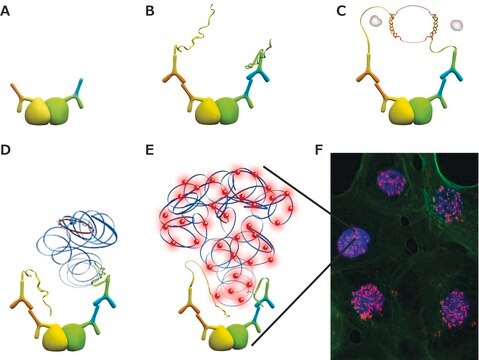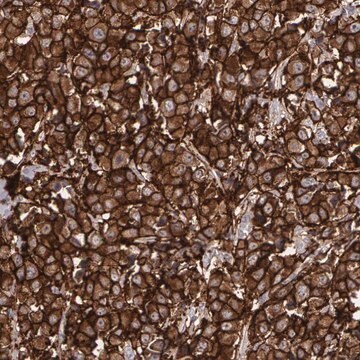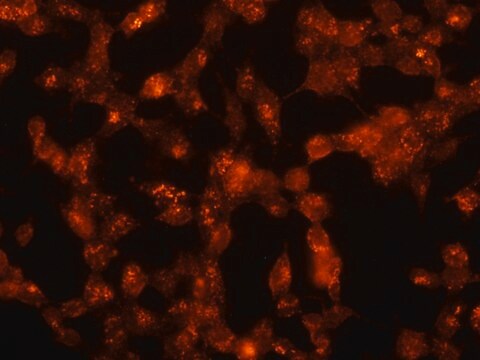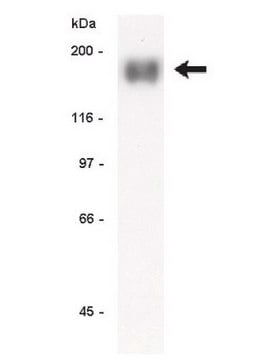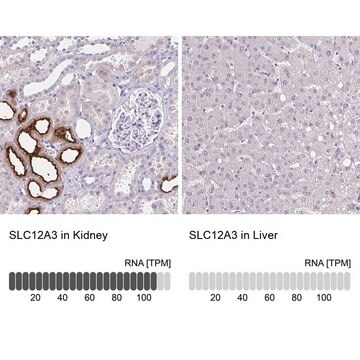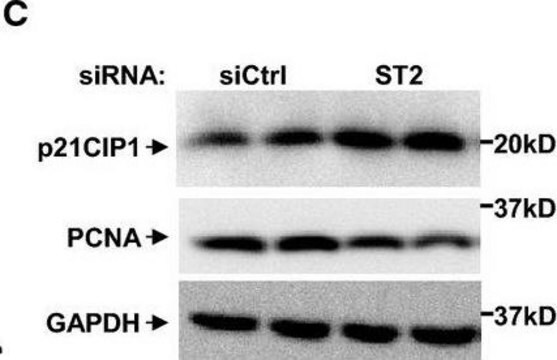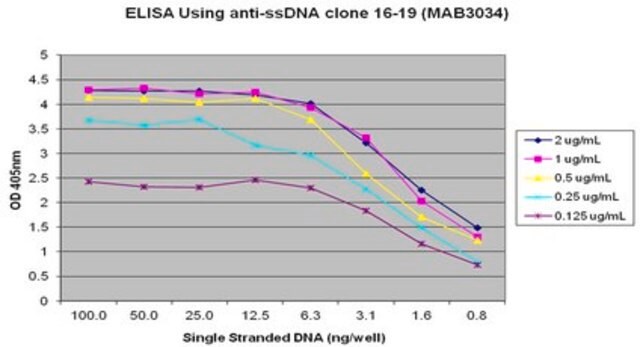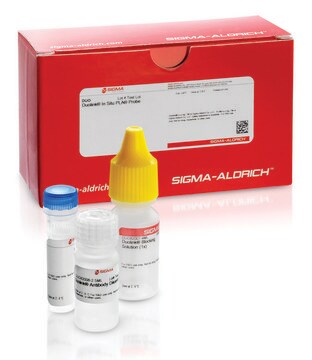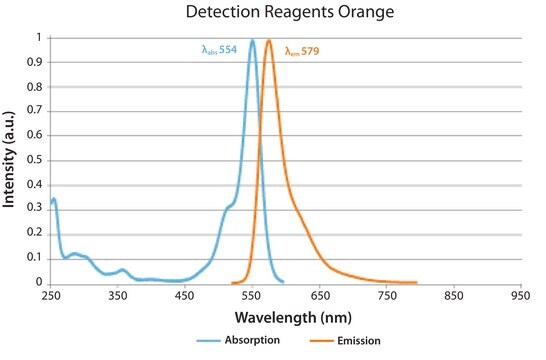E3138
Monoclonal Anti-Epidermal Growth Factor Receptor antibody produced in mouse
clone F4, ascites fluid
Sinônimo(s):
Anti-EGFR
About This Item
Produtos recomendados
fonte biológica
mouse
Nível de qualidade
conjugado
unconjugated
forma do anticorpo
ascites fluid
tipo de produto de anticorpo
primary antibodies
clone
F4, monoclonal
contém
15 mM sodium azide
reatividade de espécies
human
embalagem
antibody small pack of 25 μL
técnica(s)
immunohistochemistry (formalin-fixed, paraffin-embedded sections): suitable
immunohistochemistry (frozen sections): suitable
immunoprecipitation (IP): suitable
indirect ELISA: suitable
microarray: suitable
western blot: 1:2,000
Isotipo
IgG1
nº de adesão UniProt
Condições de expedição
dry ice
temperatura de armazenamento
−20°C
modificação pós-traducional do alvo
unmodified
Informações sobre genes
human ... EGFR(1956)
Procurando produtos similares? Visita Guia de comparação de produtos
Descrição geral
Especificidade
Imunogênio
Aplicação
- western blotting
- immunoprecipitation
- immunocytochemistry
- immunohistochemical staining
Ações bioquímicas/fisiológicas
Exoneração de responsabilidade
Não está encontrando o produto certo?
Experimente o nosso Ferramenta de seleção de produtos.
produto relacionado
recomendado
Código de classe de armazenamento
10 - Combustible liquids
Classe de risco de água (WGK)
nwg
Ponto de fulgor (°F)
Not applicable
Ponto de fulgor (°C)
Not applicable
Certificados de análise (COA)
Busque Certificados de análise (COA) digitando o Número do Lote do produto. Os números de lote e remessa podem ser encontrados no rótulo de um produto após a palavra “Lot” ou “Batch”.
Já possui este produto?
Encontre a documentação dos produtos que você adquiriu recentemente na biblioteca de documentos.
Os clientes também visualizaram
Nossa equipe de cientistas tem experiência em todas as áreas de pesquisa, incluindo Life Sciences, ciência de materiais, síntese química, cromatografia, química analítica e muitas outras.
Entre em contato com a assistência técnica